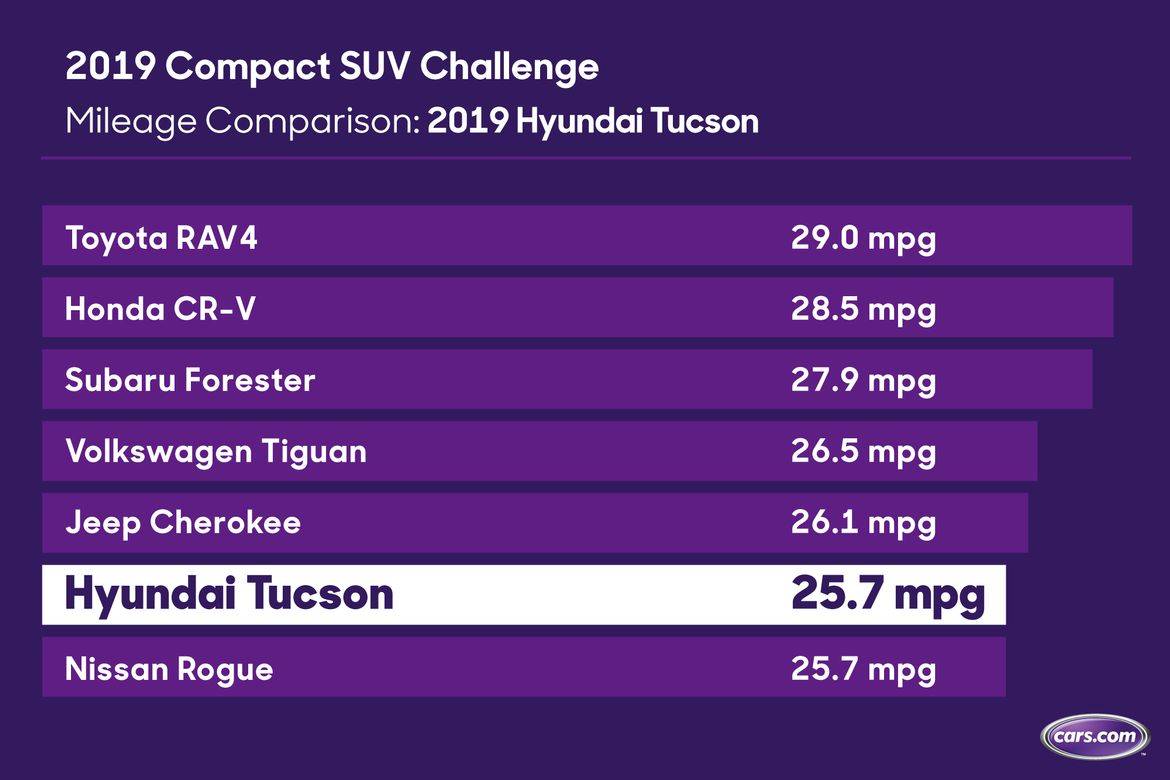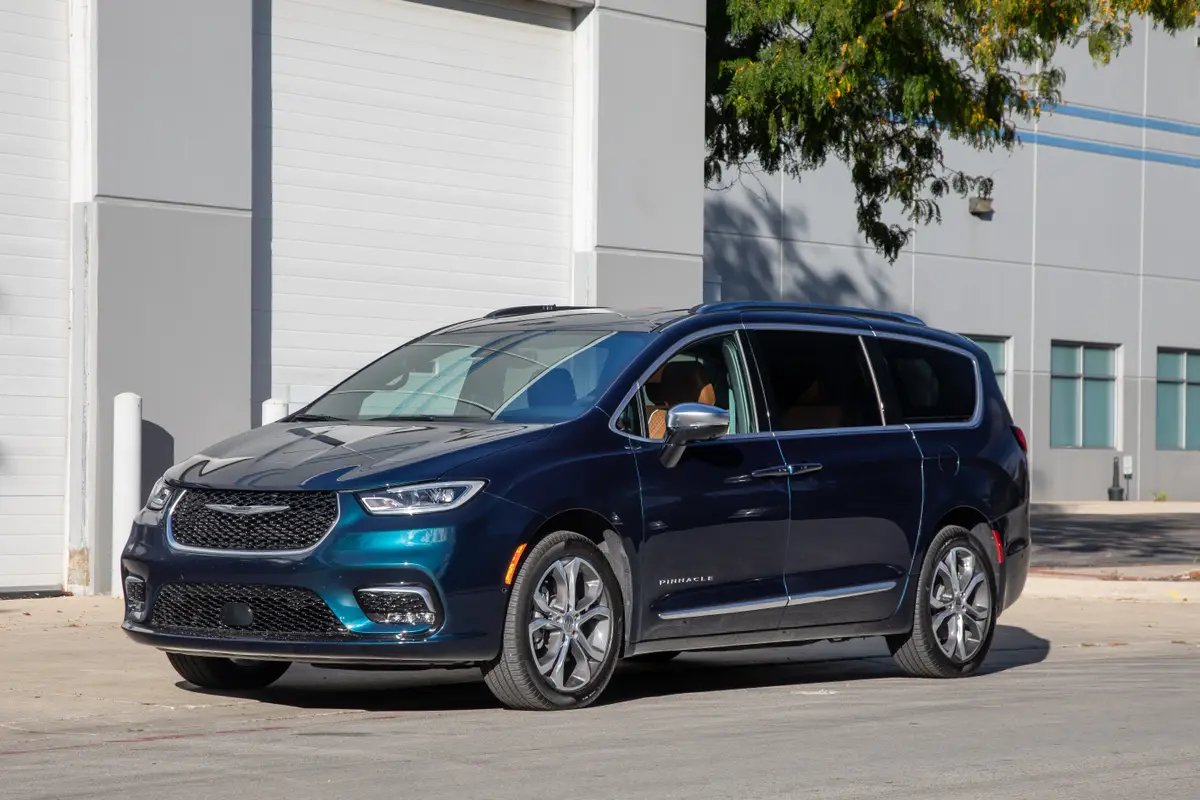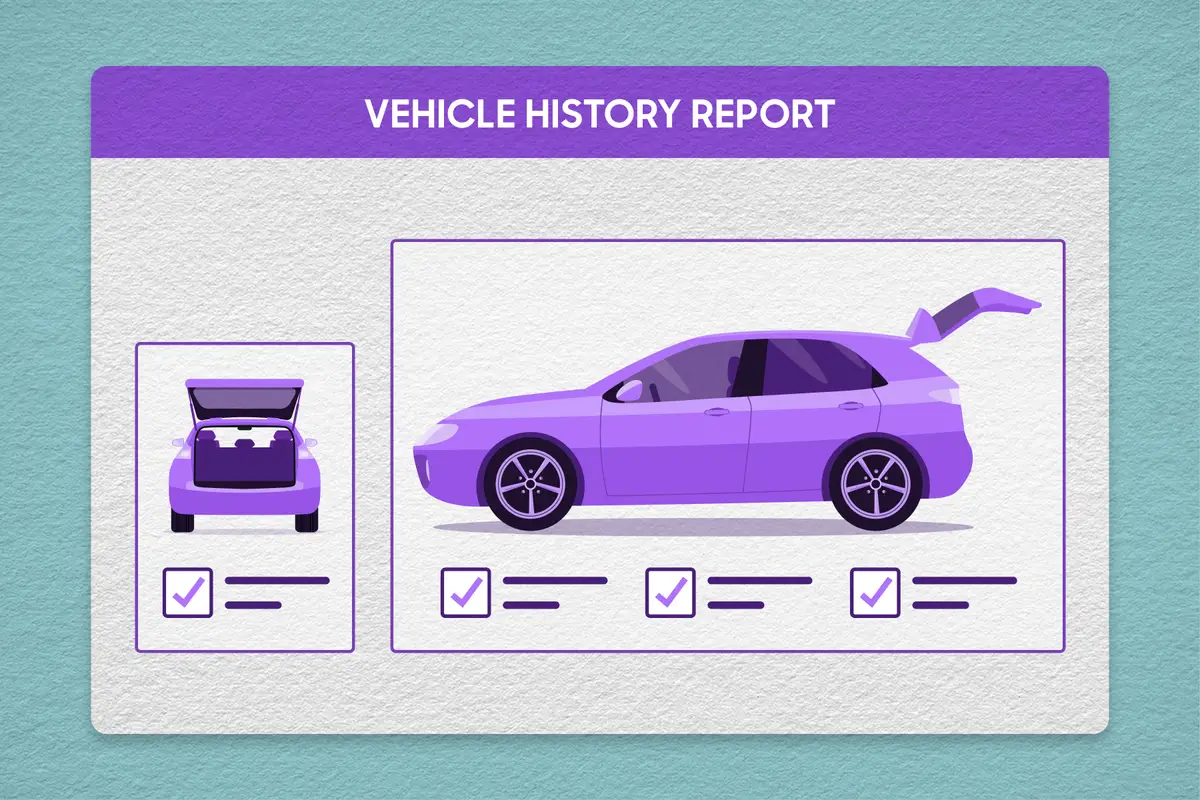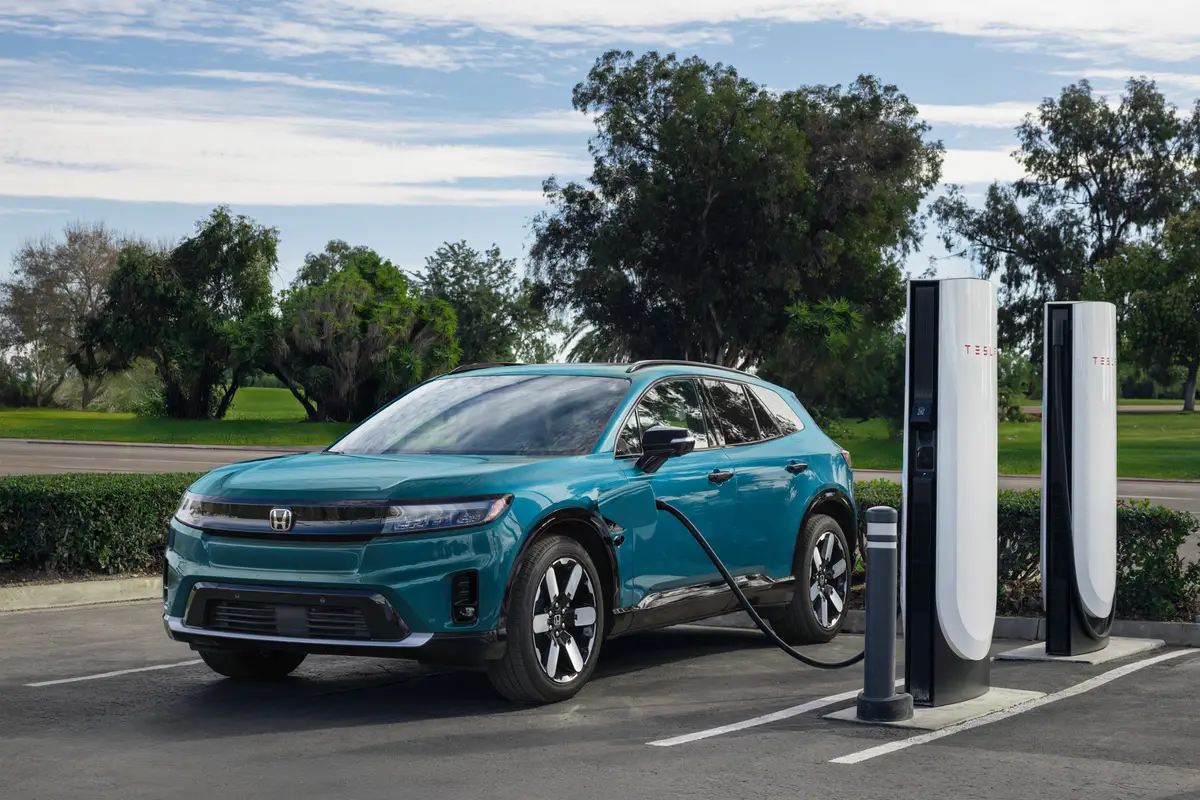2019 Hyundai Tucson MPG: Our Real-World Testing Results


Hyundai’s refreshed 2019 Tucson and six other compact SUVs — the Honda CR-V, Jeep Cherokee, Nissan Rogue, Subaru Forester, Toyota RAV4 and Volkswagen Tiguan — were contenders in our recent 2019 Compact SUV Challenge, which included a fuel economy test. Hyundai sent us a top-of-the-line all-wheel-drive Ultimate trim level for our test, and the SUV’s as-tested price of $34,130, including a $1,045 destination charge, made it the least-expensive SUV of the bunch. The Tucson’s observed fuel economy of 25.7 mpg is close to its EPA highway rating of 26 mpg, but it tied with the Rogue for worst observed mpg in our test.
Related: 2019 Hyundai Tucson Review: Updates Freshen Journeyman Compact SUV’s Appeal
- ${price_badge()}
- ${ami_badge()}
- ${battery_badge()}${ev_report_link()}
- ${hot_car_badge()}
- ${award_badge()}
- ${cpo_badge()}
${price_badge_description}
${ami_badge_description}
The EV Battery Rating is based on this vehicle's current expected range relative to the vehicles expected range when new. ${battery_badge_text}
This vehicle is certified pre-owned, backed by a manufacturer warranty, and typically undergoes a rigorous multi-point inspection to ensure quality and reliability.
This vehicle is currently in high demand given its competitive price, desirable features, and overall condition, and may have a higher chance of selling quickly.
Shop the 2019 Hyundai Tucson near you


Our Tucson was powered by an optional 181-horsepower, 2.4-liter four-cylinder. The engine drives a six-speed automatic transmission, and the powertrain’s overall smoothness and responsiveness helped the Tucson’s overall score in our test. Our Tucson was rated 21/26/23 mpg city/highway/combined, according to the EPA, which puts its 23 mpg combined rating at the low end of the SUVs we tested; only the V-6-powered Cherokee’s 22 mpg combined rating was lower.
Our 215-mile drive route favored highway-type driving to simulate a family road trip — it consisted primarily of suburban streets, interstates and country roads — and our observed gas mileage reflected this; the Tucson’s trip computer read 26.1 mpg at the end of the drive, and crunching some numbers gave us pump-based fuel economy of 25.2 mpg. The average of these two numbers — 25.7 mpg — was the Tucson’s real-world fuel economy. Picking the Tucson’s standard 161-hp, 2.0-liter four-cylinder engine doesn’t increase combined fuel economy compared with the 2.4-liter when both have AWD: both engines are rated 23 mpg combined. Going with a front-wheel-drive version brings slightly higher ratings: 22/28/25 mpg with the 2.4-liter and 23/30/26 mpg with the 2.0-liter.
Observed gas mileage for the other five SUVs, in descending order, was 29 mpg (RAV4), 28.5 mpg (CR-V), 27.9 mpg (Forester), 26.5 mpg (Tiguan) and 26.1 mpg (Cherokee).

Fuel economy was one of the many things we tested when evaluating these seven SUVs. For more information on the subjective and objective test categories check out the How We Tested page.
More From Cars.com:
- 2019 Compact SUV Challenge Video
- Research SUVs
- 2019 Jeep Cherokee Review: The Edge of Greatness
- 2019 Subaru Forester Review: New and Better, But Not Shouting It
- 2019 Toyota RAV4 Review: Delivers More, Costs More
Cars.com’s Editorial department is your source for automotive news and reviews. In line with Cars.com’s long-standing ethics policy, editors and reviewers don’t accept gifts or free trips from automakers. The Editorial department is independent of Cars.com’s advertising, sales and sponsored content departments.

Mike Hanley has more than 20 years of experience reporting on the auto industry. His primary focus is new vehicles, and he's currently a Senior Road Test Editor overseeing expert car reviews and comparison tests. He previously managed Editorial content in the Cars.com Research section.
Featured stories




